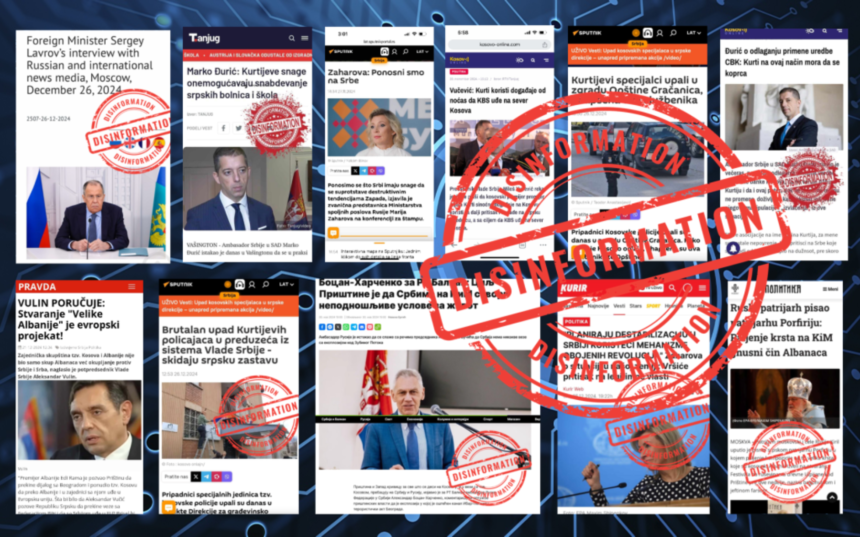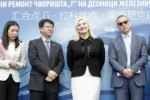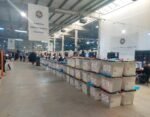In 2024, disinformation campaigns orchestrated by Serbia and Russia continued to target Kosovo, Ukraine, and the West, advancing narratives aimed at shaping public perception and furthering geopolitical agendas, reports The Geopost.
Kosovo: Persecution and Brutality
The central disinformation narrative regarding Kosovo focused on portraying Serbs in the region as victims of persecution, arrest, and torture. Both the Serbian government and Russia played significant roles in spreading these claims, with the Russian Ministry of Foreign Affairs amplifying the narrative, often through its media outlets, including RT Balkan.
One key issue involved the actions of Kosovo Police, which Serbia claimed were violent against the Serb population. The Serbian government accused the Kosovo Police of “terror and brutality” during operations to shut down facilities misusing public funds. These false claims included allegations of illegal confiscations of Serb properties in northern Kosovo, despite evidence showing no harm to anyone during these operations.
Serbia and Russia Amplifying False Narratives
The Russian ambassador to Serbia, Aleksandr Bocan-Kharchenko, further fueled disinformation by supporting false claims about the Ibar-Lepenc attack in late November. Despite the lack of evidence, Bocan-Kharchenko aligned with the Serbian government’s narrative, suggesting a terrorist attack against Serbs in northern Kosovo. Kosovo Police later debunked these claims, revealing evidence linking the attack to the Banjska assault and showing Serbian symbols at the scene.
The Serbian Orthodox Church also contributed to the spread of disinformation. Russian Patriarch Kirill falsely claimed that Kosovo Albanians had committed a blasphemous act by burning a religious symbol in Ulpiana. In reality, the act was an artistic performance, meant to honor early Christian martyrs, not an attack on religious symbols.
Distorted Narratives About NATO and the West
Russia’s disinformation also extended to manipulating historical events, particularly the 1999 NATO intervention in Kosovo. Russian Foreign Ministry spokeswoman Maria Zakharova distorted facts about NATO’s actions, framing them as a violation of Serbia’s dignity, while omitting the fact that NATO’s intervention aimed to stop the ethnic cleansing that Serbia had been carrying out against Albanians in Kosovo.
Additionally, Zakharova falsely claimed that the West was actively trying to destabilize Serbia, using “color revolutions” to destabilize the country. This narrative sought to present the West as the root cause of unrest in Serbia, despite protests being driven by domestic grievances, such as the tragic roof collapse at a railway station.
Serbia’s Misinformation on “Greater Albania” and EU Support
Serbian officials, such as Deputy Prime Minister Aleksandar Vulin, also spread false information about the European Union supporting the creation of a “Greater Albania.” Vulin claimed that the EU supported Kosovo joining Albania, a distortion of Albanian Prime Minister Edi Rama’s statement, which expressed Albania’s support for Kosovo’s aspirations to join the EU as an independent state.
Disinformation in the Context of Russia’s War in Ukraine
Russia’s disinformation also targeted Ukraine, with fabricated reports accusing Western nations of waging biological warfare. Russian military expert Igor Nikulin spread claims about Western biolaboratories near Russia’s borders, yet these laboratories were actually involved in disease monitoring and prevention, not biological warfare.
Russian Foreign Minister Sergei Lavrov further perpetuated disinformation by claiming that France had sought to engage in negotiations with Moscow over Ukraine, excluding Kiev. This claim was quickly debunked by French officials, who reaffirmed that it was up to Ukraine to determine the terms for any negotiations.
The Role of the Russian Church in Propaganda
The Russian Church also joined the disinformation effort, with Patriarch Kirill framing the conflict in Ukraine as a spiritual battle, casting the West as the instigator of the war. This narrative sought to rally support for Russia’s actions in Ukraine, presenting the conflict as a defense of Russian values against Western forces.
The disinformation campaigns led by Serbia and Russia throughout 2024 aimed to distort reality, targeting Kosovo, Ukraine, and the West. These efforts manipulated historical events, fabricated reports of persecution and violence, and portrayed the West as the primary antagonist. As these false narratives continue to spread, it remains crucial for the international community to address the ongoing information warfare and work toward truth and reconciliation in the region.







